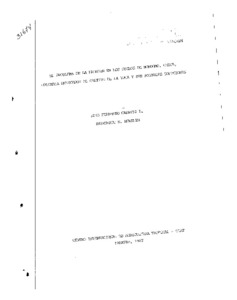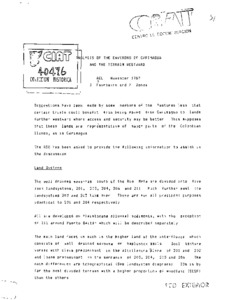Mission
To reduce hunger and poverty, and improve human nutrition in the tropics through research aimed at increasing the eco-efficiency of agriculture.
People
CIAT’s staff includes about 200 scientists. Supported by a wide array of donors, the Center collaborates with hundreds of partners to conduct high-quality research and translate the results into development impact. A Board of Trustees provides oversight of CIAT’s research and financial management.
Values
- Shared organizational ethic
- We respect each other, our partners, and the people who benefit from our work. We act with honesty, integrity, transparency, and environmental responsibility in all of our joint endeavors.
- Learning through partnerships
- We work efficiently and pragmatically together and with partners. Considering our diversity to be a key asset, we adapt readily to change and strive to improve our performance through continuous learning.
- Innovation for impact
- We develop innovative solutions to important challenges in tropical agriculture, resulting in major benefits for the people who support, participate in, and profit from our work.
Members:
Resources
Displaying 811 - 815 of 958Proyecto pasturas en Panama (IDIAP/RUTGERS/CIAT)
Patrones de manejo de suelos y uso de fertilizantes fosfatados entre productores de arroz de secano en el Meta, Colombia
El cultivo de la yuca en los Llanos Orientales de Colombia: Variedades y practicas agronomicas
Recommendations are given on the var. and cultural practices used in cassava cultivation in the Colombian Llanos Orientales. Initially, soil acidity and low fertility were believed to be the major constraints; however, trials have indicated that diseases (bacterioses, superelongation, and anthracnose), pests (mites, thrips, mealybugs, and lace bugs), and the long summer season are obstacles more difficult to overcome. Var. should be selected not only for yields and resistance to the above diseases and pests but also for final end use of roots.




